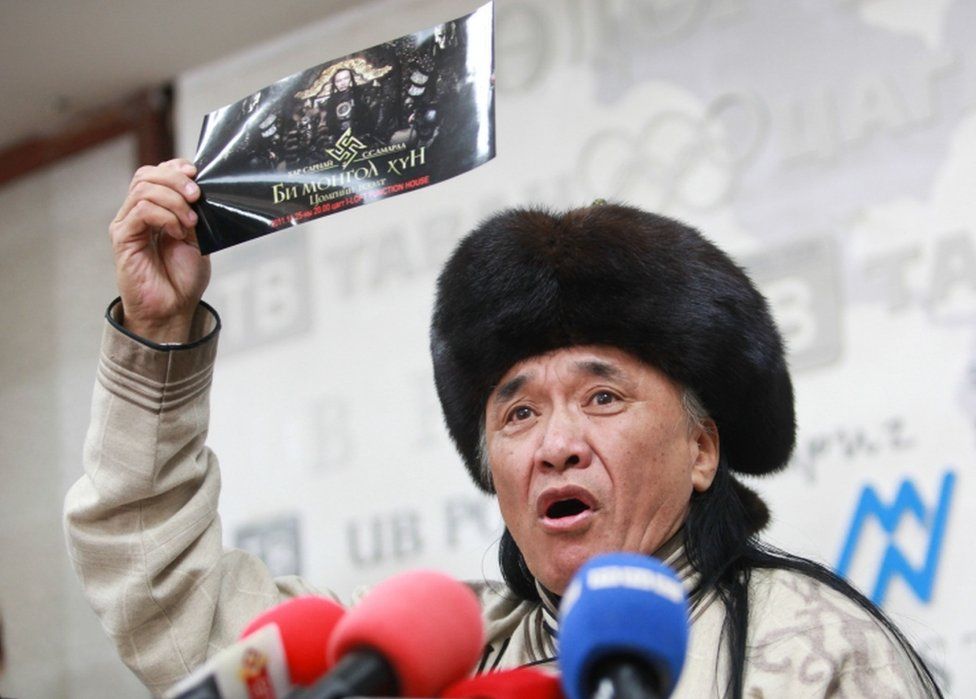Russian diplomat 'beat Mongolian rapper over Swastika outfit'
- Published

The father of the injured Mongolian rapper says the beating left his son in a coma
A top Mongolian rapper was beaten into a coma by a Russian diplomat after wearing a swastika on stage, his lawyer and family have claimed.
Amarmandakh Sukhbaatar was performing in the country's capital Ulan Bator when the alleged attack took place.
Russian news reports said he was hit over the head with a bottle and repeatedly kicked in the face.
The Russian embassy said it was investigating, but called local press reports "distorted".
The rapper had taken to the stage in a red deel - a Mongolian robe - embroidered with a swastika.
Though associated with the Nazis, the swastika is a traditional symbol in Mongolia that pre-dates Hitler.
Mr Sukhbaatar's father, Sevjidiin Sukhbaatar, told a news conference that his son spent about 10 days in a coma after the beating.
"My son was hit in the face several times with a metal object and was seriously injured. His brain was seriously hurt," he said.
Mr Sukhbaatar displayed a book of traditional swastika patterns to emphasise that it is not a hate symbol in his country.
Sevjidiin Sukhbaatar, the musician's father, displays a book of traditional swastika patterns to show the symbol's history in Mongolia
The Russian official accused of attacking the rapper has not been identified.
In a statement, external, the Russian embassy said it was investigating press and social media reports of the assault.
"According to our preliminary information," it said, the reports were "distorted, particularly about the date, the number of participants and the circumstances of the accident".
Tens of millions of Soviet citizens died fighting the forces of Nazi Germany during World War Two.
Symbol of eternity
The swastika is believed to have originated in India thousands of years ago, and was used in Mongolia as a symbol of eternity centuries before the Third Reich.
Amarmandakh Sukhbaatar - who is known as Amraa and is the lead singer of the band Khar Sarnai [Black Rose] - frequently wears the symbol on stage, and his songs often refer to his country's history, culture and identity.
The swastika is also used by groups on Mongolia's far-right however.
The musician's lawyer, father, and a band member denied reports on social media that he shouted "Heil Hitler" at the show.
Lawyer Gankhuugiin Batbayar said the suspect in the beating had not been arrested, adding: "[He] must be investigated according to Mongolian law, no matter his status or immunity as a diplomat".
A police spokesman told the AFP news agency that the case was under investigation.
"The suspect is a Russian diplomatic officer and the reason he wasn't kept in detention is the injury is not serious," he said.
"It's not true that the suspect wasn't arrested because of diplomatic immunity."
- Published13 September 2016
- Published27 October 2016
- Published4 September 2023